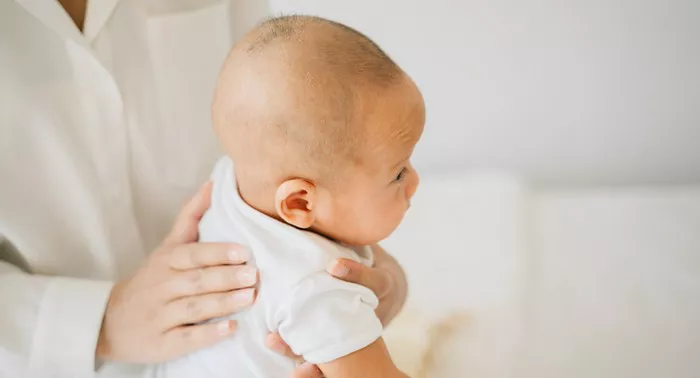As a parent, one of the primary concerns is ensuring your newborn’s comfort and well-being. After feeding, burping is a common practice. Many parents wonder what happens if their newborn doesn’t burp. This article will explore the significance of burping, the reasons some babies might not burp, potential consequences of not burping, and tips for effective burping.
Understanding Burping
Burping is the process of expelling air from the stomach through the mouth. This air is often swallowed during feeding. Whether your baby is breastfeeding or bottle-feeding, they may take in air along with the milk. This air can lead to discomfort if not released.
Burping helps relieve pressure and prevents gas from building up in your baby’s stomach. It is essential for their comfort and can help them feel more settled after feeding.
Why Burping Is Important
Burping is essential for several reasons. First, it helps release trapped air. This air can cause discomfort, making your baby fussy or restless. Second, burping reduces the risk of spitting up. Babies who do not burp may spit up more frequently, leading to a messy situation.
In some cases, not burping may lead to colic. Colic refers to excessive crying and fussiness in an otherwise healthy baby. While the exact cause of colic is unknown, trapped gas could be a contributing factor.
What Happens If Your Newborn Doesn’t Burp?
If your newborn doesn’t burp after feeding, several things may happen. Most of the time, it is not a cause for concern. However, it is essential to monitor your baby’s behavior.
Discomfort
If your baby doesn’t burp, they may experience discomfort. This discomfort can manifest as fussiness or crying. Your baby may arch their back, clench their fists, or seem irritable. These behaviors indicate that they may have trapped air in their stomach.
Spitting Up
Another common occurrence is spitting up. When a baby does not burp, the trapped air can push milk back up. This can result in spitting up. While spitting up is normal for many infants, excessive spitting up can be frustrating for parents.
Fussiness and Crying
A newborn who hasn’t burped may become fussy or cry more than usual. This crying can be distressing for both the baby and the parents. If your baby seems uncomfortable, it may be due to gas build-up in their stomach.
Risk of Colic
As mentioned earlier, not burping can lead to colic. Colic is characterized by excessive crying for three or more hours a day, three days a week, for three weeks or longer. While not all cases of colic are due to trapped gas, it can be a contributing factor.
Factors That Influence Burping
Several factors can influence whether your baby burps after feeding. Understanding these factors can help you address any issues that arise.
Feeding Method
The method of feeding can play a significant role in how much air your baby swallows. Breastfed babies may swallow less air than bottle-fed babies, especially if the bottle nipple flow is too fast. If you are using a bottle, consider choosing one designed to reduce air intake.
Baby’s Position
The position in which you hold your baby during feeding can impact their ability to burp. Keeping your baby upright while feeding can help reduce the amount of air they swallow. After feeding, holding them in an upright position can make it easier for them to burp.
Baby’s Age
As babies grow, their digestive systems mature. Younger babies tend to have more gas and may need to burp more frequently than older infants. As your baby develops, they may not need to burp as often.
Tips for Encouraging Burping
If your baby doesn’t burp after feeding, there are several techniques you can try to encourage burping.
Hold Them Upright
After feeding, hold your baby upright against your shoulder. This position can help gravity do its job and encourage the air to rise. Gently pat or rub their back to stimulate burping.
Try Different Positions
Experiment with different positions to find what works best for your baby. You can try holding your baby sitting on your lap, supporting their chin with one hand while gently patting their back with the other.
Give Them Time
Sometimes, it takes a little longer for a baby to burp. If your baby seems content after feeding, you may not need to force a burp. Give them some time in an upright position to see if they will burp naturally.
Be Gentle
If you are patting or rubbing your baby’s back, be gentle. Firm pats can help, but be cautious not to apply too much pressure. A light touch can still be effective without causing discomfort.
When to Seek Help
In most cases, not burping after feeding is not a cause for concern. However, you should seek help from a healthcare professional if:
Your baby is excessively fussy or cries for long periods after feeding.
There is a significant increase in spitting up or vomiting.
Your baby shows signs of distress, such as arching their back or refusing to eat.
You notice other concerning symptoms, such as poor weight gain or changes in feeding patterns.
See also: When Do You Start Burping A Newborn
Conclusion
In conclusion, burping is an essential part of feeding your newborn. While it is common for babies to not burp after every feeding, parents should monitor their baby’s behavior. Discomfort, fussiness, and spitting up can result from trapped air in the stomach.
It is important to find effective techniques to encourage burping, such as holding your baby upright and trying different positions. Remember that as your baby grows, their need to burp may decrease. If you have concerns about your baby’s feeding or behavior, consult with a healthcare professional for guidance.
Ultimately, being attentive to your newborn’s needs will help ensure they are comfortable and happy after feeding.
Related topics:



